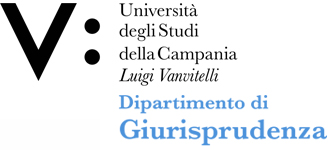Alberto VIRGILIO
Insegnamento di ISTITUZIONI DI DIRITTO PROCESSUALE PENALE
Corso di laurea in SCIENZE DEI SERVIZI GIURIDICI
SSD: IUS/16
CFU: 9,00
ORE PER UNITÀ DIDATTICA: 54,00
Periodo di Erogazione: Secondo Semestre
Italiano
| Lingua di insegnamento | Italiano |
| Contenuti | Programma del Corso di Istituzioni di diritto processuale penale |
| Testi di riferimento | P. TONINI, Manuale di procedura penale, Giuffrè, 2021 |
| Obiettivi formativi | L’insegnamento mira ad approfondire le problematiche del processo penale anche alla luce dei recenti interventi legislativi, allo scopo di fornire allo studente gli opportuni strumenti per una migliore comprensione dei singoli istituti |
| Prerequisiti | Diritto pubblico e Costituzionale o Diritto Costituzionale o Diritto Costituzionale e tutela dei diritti fondamentali e Diritto penale |
| Metodologie didattiche | Il Corso, strutturato in 54 ore di didattica frontale (CFU 9), con impronta interattiva, sarà integrato da interventi di magistrati, avvocati e investigatori privati al fine di consentire agli studenti una più corretta visione teorico-pratica degli argomenti trattati |
| Metodi di valutazione | Prova orale. La votazione espressa in trentesimi, seguirà, in linea generale, i seguenti criteri: 30-30 e lode: lo studente dovrà dimostrare ottima conoscenza degli argomenti, ottima proprietà di linguaggio, ottima capacità analitica e di ragionamento. 26-29: lo studente dovrà dimostrare buona conoscenza degli argomenti, buona proprietà di linguaggio, buona capacità analitica. 24-25: lo studente dovrà dimostrare conoscenza di base dei principali argomenti, discreta proprietà di linguaggio. 21-23: lo studente non mostra piena padronanza degli argomenti principali dell'insegnamento, pur possedendone le conoscenze fondamentali. 18-20: lo studente dovrà possedere una conoscenza minima degli argomenti principali dell'insegnamento e del linguaggio tecnico. Insufficiente: lo studente non possiede una conoscenza accettabile dei contenuti degli argomenti |
| Altre informazioni | Il programma, i Testi adottati e le modalità di verifica sono gli stessi sia per gli studenti che frequentano il Corso che per quelli non frequentanti. |
| Programma del corso | A) Le premesse metodologiche per l’introduzione allo studio dei diritti procedurali: la tutela dei diritti fondamentali dell’individuo nel processo penale. Le fonti. I modelli processuali B) Le regole della procedura penale. Il procedimento per l’azione: i profili generali della giurisdizione; la funzione e i poteri dei soggetti pubblici del processo; la partecipazione della difesa. Patologia degli atti. I poteri coercitivi della polizia giudiziaria, le richieste del pubblico ministero in tema di misure cautelari e i rimedi de libertate. I poteri investigativi del pubblico ministero e della polizia giudiziaria in rapporto ai mezzi di ricerca della prova. Lo sviluppo delle indagini preliminari. La richiesta di archiviazione e l’esercizio dell’azione penale. L’udienza preliminare. I riti differenziati. I principi che regolano il dibattimento |
English
| Teaching language | Italian |
| Contents | Program of the Course of Institutions of criminal procedural law |
| Textbook and course materials | P. TONINI, Criminal Procedure Manual, Giuffrè, 2021 |
| Course objectives | The course aims to deepen the problems of the criminal trial also in the light of recent legislative interventions, in order to provide the student with the appropriate tools for a better understanding of the individual institutions |
| Prerequisites | Public and Constitutional Law or Constitutional Law or Constitutional Law and protection of fundamental rights and Criminal Law |
| Teaching methods | The course, structured in 54 hours of frontal teaching (9 credits), with an interactive imprint, will be integrated by interventions by magistrates, lawyers and private investigators in order to allow students a more correct theoretical-practical vision of the topics covered |
| Evaluation methods | Oral exam. The vote expressed out of thirty, will generally follow the following criteria: 30-30 cum laude: the student must demonstrate excellent knowledge of the topics, excellent language skills, excellent analytical and reasoning skills. 26-29: the student must demonstrate good knowledge of the topics, good language skills, good analytical skills. 24-25: the student will have to demonstrate basic knowledge of the main topics, good command of the language. 21-23: the student does not show full command of the main topics of the teaching, even if he possesses the fundamental knowledge. 18-20: the student must have a minimum knowledge of the main teaching topics and technical language. Insufficient: the student does not have an acceptable knowledge of the contents of the topics |
| Other information | The programme, the texts adopted and the methods of verification are the same for both students attending the course and for those not attending. |
| Course Syllabus | A) The methodological premises for the introduction to the study of procedural rights: the protection of the fundamental rights of the individual in the criminal trial. The sources. The procedural models B) The rules of criminal procedure. The procedure for the action: the general profiles of the jurisdiction; the function and powers of the public subjects of the process; defense participation. Pathology of acts. The coercive powers of the judicial police, the requests of the public prosecutor regarding precautionary measures and de libertate remedies. The investigative powers of the public prosecutor and the judicial police in relation to the means of seeking evidence. The development of the preliminary investigations. The request for dismissal and the exercise of the criminal action. The preliminary hearing. Different rites. The principles governing the trial |








